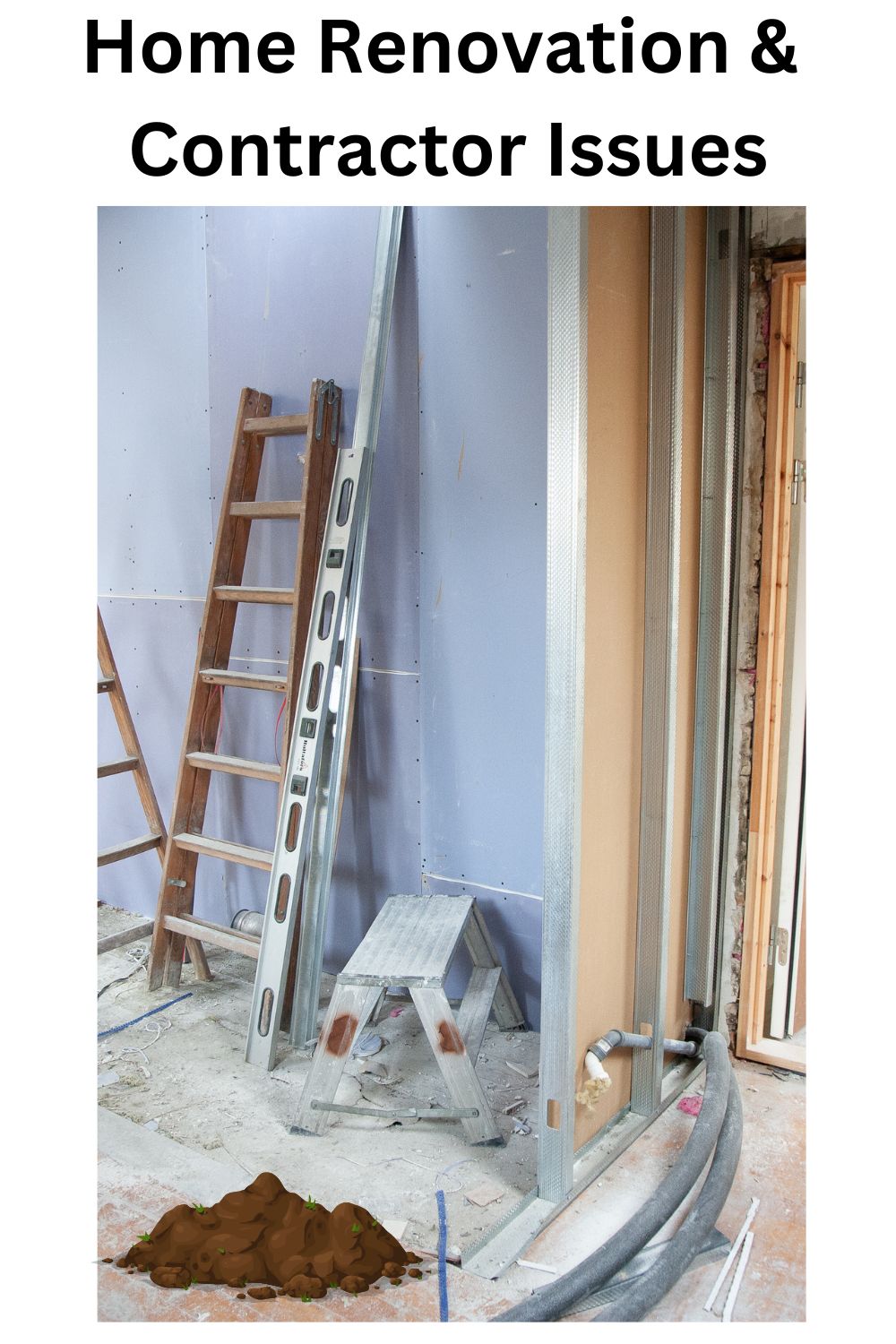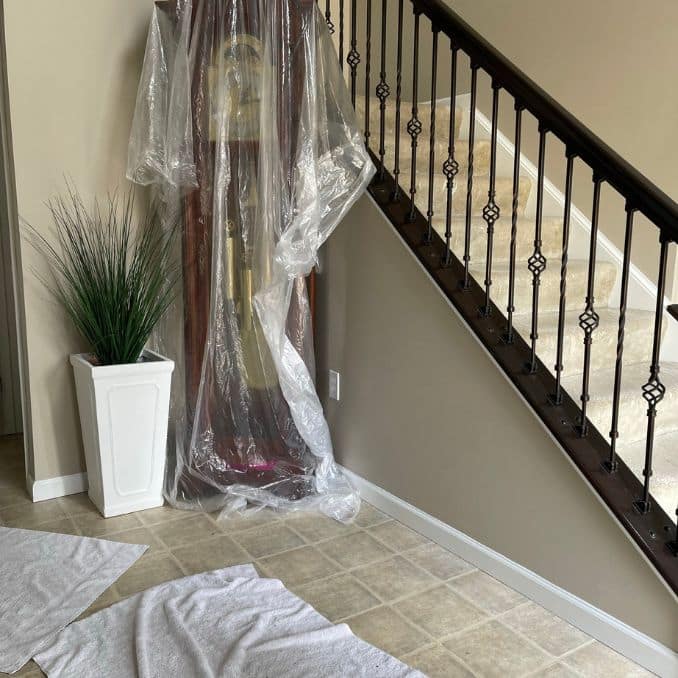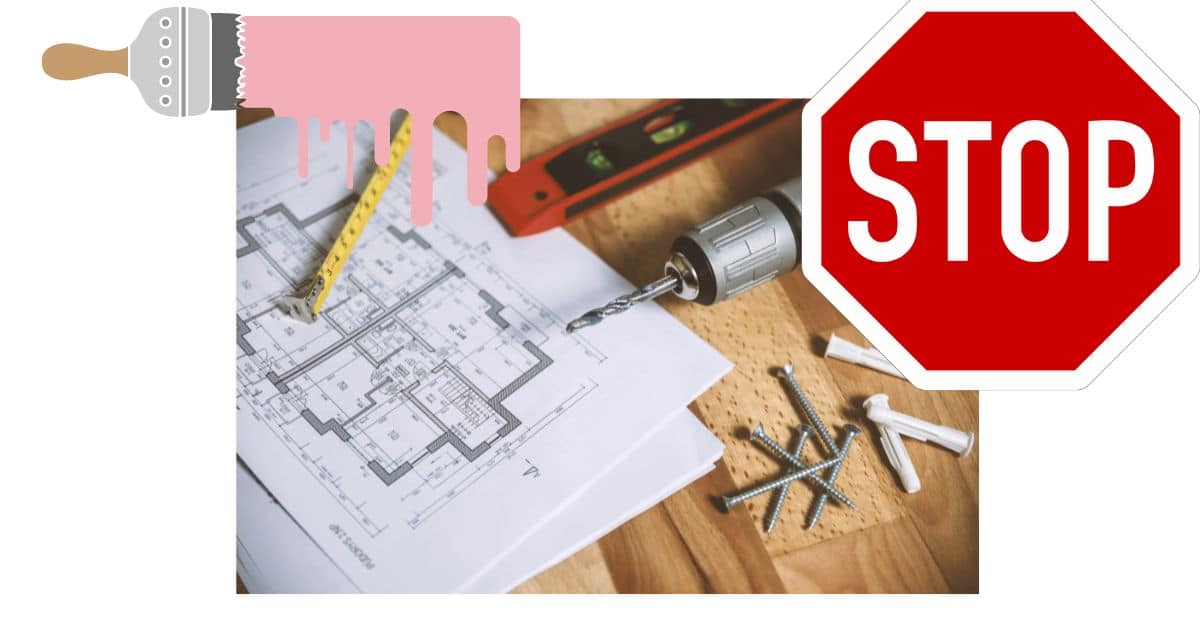So it’s happened, you need a bathroom renovation, a room renovation, or a few rooms updated in your home, and you have found a contractor you are comfortable using; what comes next is everything.
While there are many great home improvement contractors, there are also many problems with contractors. You are about to learn about the dirty home improvement contractor issues to curtail fast for your sanity!

The first question you’ve already answered is, “do you want to do a DIY” and since you have hired a home improvement contractor, the answer is clearly, “no!” Everything from this moment forward will turn you on or off for future home updates and upgrades.
Problems With Contractors – The Good and The Bad
You will find many general and home improvement contractors and want to learn as much as possible about contractors you may hire BEFORE hiring them!
Not every contractor hired is good, and not everyone is terrible, but you need to set some rules to keep your sanity while any project in your home is going on.

Good contractors are notably harder to find, but it is hardly a mission impossible; use due diligence when seeking your crew, which should help you avoid any problems with contractors. Homework is necessary!
If you don’t, the dirty home improvement contractor issues will mount before you can curtail them, and you will be upset every day that the contractor works at your home.
The issues are dirty because most people don’t discuss them upfront, and some can physically leave your home dirtier than you can imagine.
Additionally, if your work schedule is disrupted, your physical and mental health toll on home improvement will become insurmountable as you will feel beat down from disruptions and cleaning.
Table of Contents
5 Dirty Home Improvement Contractor Issues To Curtail Fast

Now let’s take a look at some practical advice to avoid particular issues with general contractors and home improvement contractors you have hired to work for you to upgrade your rooms.
#1 What Time
If you’ve hired a contractor before, you might know that most are anything but reliable and on time. So if you are not working from home or are working from home on a budget allotment of time, the contractor must show up on time so that the days you have allotted away from your physical location of work are not overdrawn upon.
Even if you work from home daily, timing still matters as you have deadlines, and you don’t want to get started and then get interrupted, so here’s what you need to know about contractors and timing.
- Agree upon a start time..
- Provide a schedule of any days the contractor CAN NOT work at your home due to your schedule.
- Make it clear that if they are late, you can not be disturbed once you have started working.
- Also, work with the contractor for a specific STOP time so you know when to expect them to leave each day.
You’ll be able to then work around their schedules if you need to come and go and know when to expect your contractor to work and stop. This is how to work with contractors from the beginning, so there is a clear set of expectations.
#2 Leave It As You Found It
If you don’t keep a clean home, expect it to get messier because this can be one of the big problems with contractors, as in, “what you see is what you are going to get back!”
I can say that the messiest area of my home is the basement, and without an attic, it is truly one mother of a storage vessel. That said, stuff is still in totes and accessible but scattered.
All the other areas are cleaned and contained, and we don’t wear shoes in our house unless they have been wiped off or covered to keep the outside dirt out of here as much as possible.
Workboots + Your Floors and Carpet
This leads me to a very relevant discussion you’ll want to tackle from the beginning. If the contractor doesn’t fit your vibe, move on because anything you don’t like can aggravate your physical and mental health toll of home improvement.
- Work with your contractor to ensure they will place a tarp or floor cover ANYWHERE they believe they will walk on
- carpets must be covered (using clear tread cover or actual tarps)
- If they don’t cover them, and you want to work with them, cover the workspace yourself
- Bare floors need to be covered as well
- At the end of each workday, those tarps must be gathered and shaken out, or they are basically in your way and dirty.
- If the contractors are working on only portions of rooms, everything else should be covered, from tables to countertops.
- If contractors choose to use booties instead of tarps, the booties need to be worn inside only and not outside (or what’s the use of using booties?)
Our favorite was a contractor a few years ago, who put on blue booties, went outside with them in rain puddles, and then came back in. Why bother?
Our best story is about our contractor, who put the plastic stair cover down and used it daily rather than traipsing up carpeted steps with dangerous tarps. You can wipe this up if you feel better at the end of each day so that you don’t get dirty of carry debris.
#3 Room Usage By Home Improvement Contractors
Do you want to know how to work with contractors? Assume nothing.
- Share which bathroom workers are allowed to use while working in your home
- Indicate which rooms are entirely off limits (more than likely any room not being operated on)
- If possible, have a table with a few chairs so they can eat lunch during break.
My one friend had a contractor who used all 5 of her bathrooms, and she kept telling him about it, and he would not stop. She locked all the doors then, and he was forced to use the bathroom she requested, and she never asked him back for more work.
Yet another friend found that during lunch break, a group of workers took over her family room, where she hit her limits. Still, again, she had never communicated anything to them, and that’s the thing about contractors if you don’t state boundaries, and they don’t, it’s all up for grabs.
#4 Rules Of Communication During Renovation
These home improvement contractor issues to curtail before they start are great guidelines to help the contractor and yourself work in tandem and not get the lines of communication tangled during your renovation.
While you must be flexible if issues creep up during a renovation, you also need boundaries.
- Establish with the contractor how to contact you (if you are working in the basement and they are upstairs)
- Texting is a great way to communicate instead of screaming your name at will (so disruptive)
- Set up a time to meet each day to discuss the scope of the project and the schedule for the next day.
- Make sure the contractor knows you will not be helping with moving anything or installing.
- Follow the same guidelines to communicate with the contractor: call or text, and meet each day!
#5 Problems With Contractors And Equipment Storage
As you might already know, your contractor will unload a lot of what they will need, and you need to supply a space that will remain untouched by you, your pets, your family, etc. so that they can use the items for your renovation project.
How to successfully work with contractors for home renovation is a fine line where you don’t touch the items and allow them to store their tools and equipment without fear of use, theft, etc.
One issue that creeps up is space and storage. For homes that are smaller with larger families or spaces that are just smaller, you’ll need to make sure you have an area available for this; otherwise, this creates problems with contractors.
- lost time loading and unloading supplies each day
- lost time having to move tools each day
Don’t touch what is not yours; know that what is there will be used and is necessary. Devote space to help the contractor do their job as efficiently as possible.
Subcontractors Appear
Ensure your contractor is upfront with you and tells you if they will be doing all the work or subcontracting because a subcontractor may not have communicated with the home improvement contractor. Therefore, all the items above were not relayed.
Plus, you’ll need to identify if this person is insured and who they are to feel comfortable with them in your home.
#6 Advertising Without Permission In An HOA
We all have seen the commercials about HOAs and how crappy and particular they can be with their bylaws, and you don’t need to get written up or fined on top of your renovation costs, so heed this advice.
Don’t allow your contractor to put a sign in your yard if you are in an HOA because of stringent rules and crappy neighbors.
However, some problems with contractors are that they don’t ask and do, and then “Mrs. Kravitz gets her panties in a ruffle and advises the HOA you have violated the bylaws,” and the next day, you get fined.
Who pays for that? This is just another set of problems with contractors.
Hopefully, your contractor asks if they can put a sign on your lawn, and you won’t have nasty neighbors!
Make Sure To Come Back and Tell Me If You Had Home Improvement Contractor Issues to Curtail
Issues come in every form, from simple things to more complex things. While this may not cover all of them, hopefully, these basics about contractors will help you avoid problems with contractors and set you down a good path!
No one is perfect, and communication is necessary on all fronts. ~ Dana XO


Leave a Reply